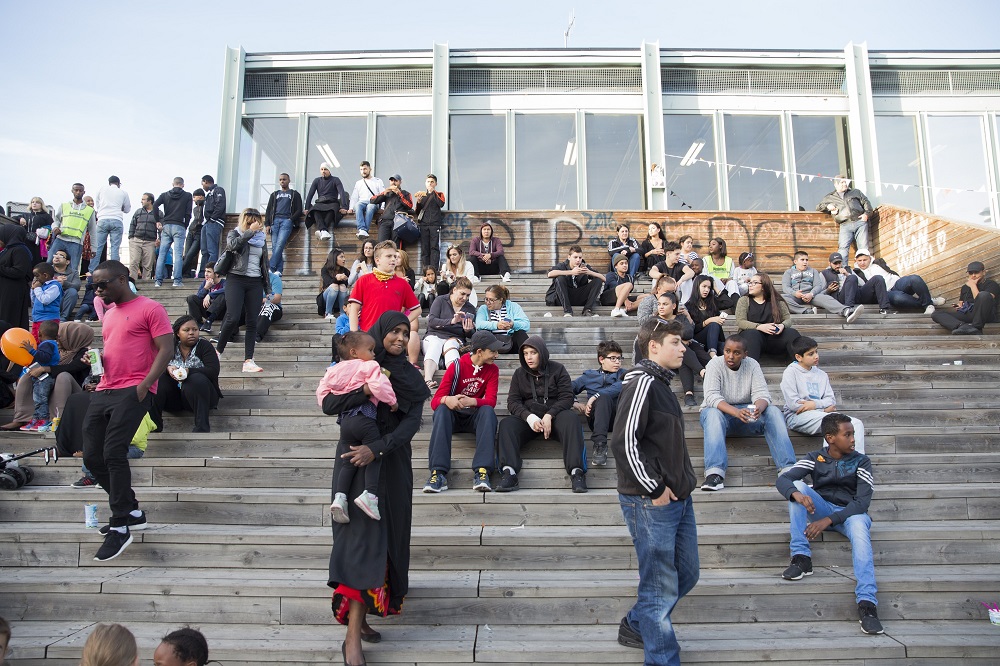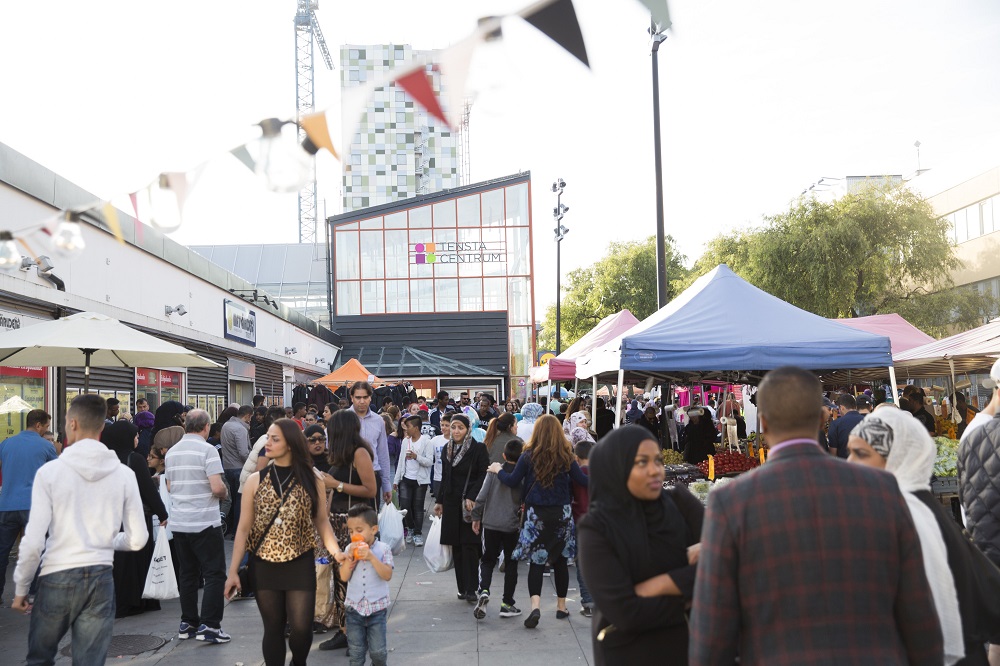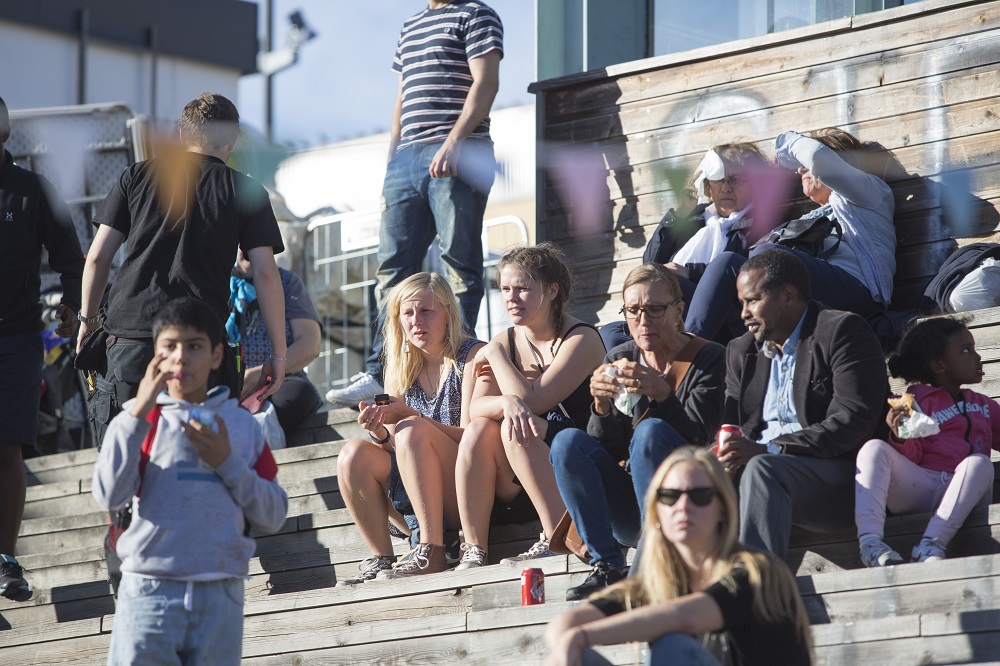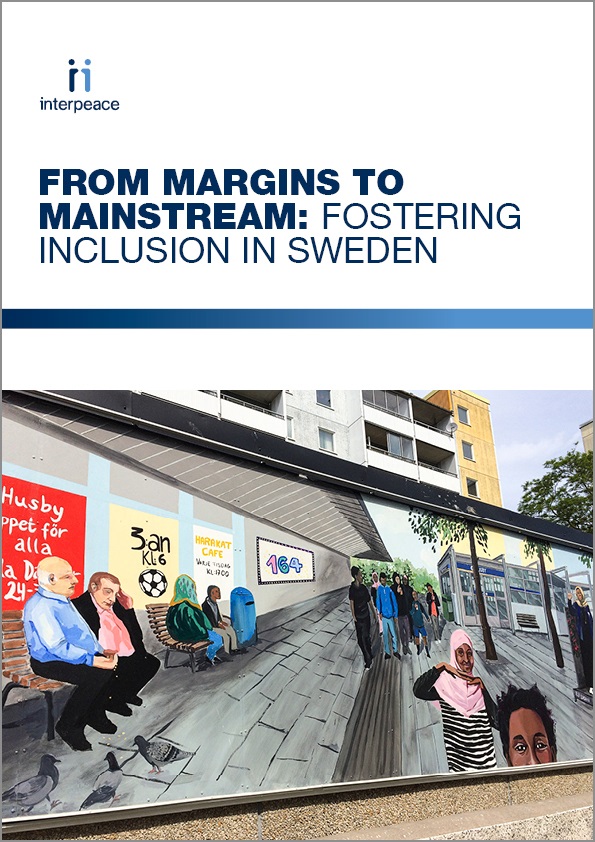Launch of Interpeace’s report on Inclusion in Sweden

Marginalization and exclusion have caused an increase of violent incidents in Europe in the past decade. Issues associated with socio-economic inequalities and lack of opportunities have resulted in social protests and riots. Following a series of social unrests in 2012 and 2013 in Sweden, Interpeace initiated a participatory research initiative in Tensta, a suburb of Stockholm, to better understand the challenges facing marginalized communities and identify practical ways to overcome exclusion. In 2015, Interpeace launched the second phase of its programme, engaging over 200 stakeholders across the country in a dialogue about the opportunities to build a more inclusive Swedish society. The project was carried out in four areas of Sweden: Tensta in Stockholm and Rosengård in Malmö, well known marginalized neighborhoods in the country, as well as Luleå in the north and Älvsjö in the Stockholm area, two areas that are representative of the national average in terms of demographics and socioeconomic standards.
"People shouldn't be focusing on their differences but on what they have in common. We are all humans and have much more in common than what we think." Youth from Tensta, Sweden
Building on the findings of its work, Interpeace is launching the report “From Margins to Mainstream: Fostering Inclusion in Sweden”. Our research reveals three main aspects that emerged as cornerstones of inclusion, according to the participants consulted in the research: acceptance, dignity and diversity. Promoting these three aspects at all levels of society will help foster greater inclusion and create better opportunities for everyone to prosper. The report highlights a number of recommendations that can be taken up by the various stakeholders working on this topic, including institutions of the state, the private sector, municipalities and civil society. The report also discusses how tackling barriers of exclusion in all aspects of life, including the education and employment systems, are critical to laying the foundations for greater inclusion.
"The only way to fail is to not do anything." A teenager from Älvsjö, Sweden
Sweden, as several countries in Europe, has recently adopted tougher asylum legislations. The large influx of migrants and refugees to the continent in the last two years captured the attention of the media and has served to reinforced negative perceptions and stereotypes of immigrants among the public, reviving and polarizing the debate on the effectiveness of integration policies and practices.
Today, Sweden has the opportunity to construct the foundation for a society that is rich in empathy and culture. Failing to take these steps, the country will see poorly integrated immigrant communities continue to grow in size and scope, and social exclusion will increase accordingly. The 2030 Agenda for Sustainable Development, and in particular Goal 16 on inclusive and peaceful societies presents an opportunity for Sweden to implement a vision for inclusion that is meaningful in tackling the challenges of inclusion in highly developed settings and to inspire other countries.
Read the full report here - From Margins to Mainstream: Fostering Inclusion in Sweden. The Swedish version of the report will be available shortly.



